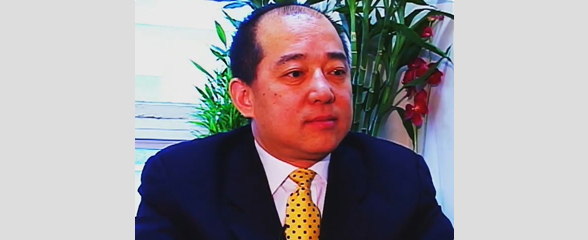9/11 Chinatown Documentation Project
This project includes interviews of people that lived or worked in the lower east side during the events on September 11th, 2001. The interviewees reflect on the tragedy and discuss how their lives and the lives of others in the community were affected by it. The interviews help to paint a portrait of how the New York Chinatown we know today was shaped by the events of that morning.
Rights & Usage:
All rights to the interviews, including but not restricted to legal title, copyrights and literary property rights, belong to the Museum of Chinese in America (MOCA). Interview can only be reproduced with permission from the Museum of Chinese in America (MOCA).

2014.036.021 Oral History Interview with May Ling
In this interview, May Ling discusses her life as a Chinese immigrant in Brooklyn, New York. Ling talks about her personal life, family, job, 9/11, Chinatown, New York City, and cultural barriers that she faced when coming to America. She talks about her Chinese and American identity as well as her occupation as a teacher.

2014.036.022 Oral History Interview with S.W. Sang March 11, 2004
S.W. Sang is a local Chinatown jewelry merchant who arrived in the United States during the 1970s. In this interview, he talks about his life as a migrant, moving from country to country, including China, Macau, and the Dominican Republic before finally settling in New York City. Sang was trained as a jeweler at a young age in the Dominican Republic and would eventually establish his business in Manhattan, operating stores in Harlem and Chinatown. As Sang expanded his business in Chinatown, he became more involved with community affairs and helped to establish associations that protected the interests of Chinatown locals and businesses. Sang also discusses the impact of the 9/11 terrorist attacks and its effects on the local economy of Chinatown.

2014.036.023 Oral History Interview with Winifred Chin January 8, 2004
In this interview, Winifred Chin discusses the garment industry in New York Chinatown before and after 9/11. Chin talks about Chinatown and how it has developed over the years. Chin’s mother worked in the garment industry in the 1950s. Back then, the garment industry was flourishing. However, Chin talks about how the garment industry has declined due to clothes being manufactured overseas.

2014.036.024 Oral History interview with Zhong Yue Zhong
Zhong Yue Zhong shared his educational background, including his undergraduate and graduate studies at Fudan University, and his reason for coming to the U.S. in 1999 to attend an academic seminar. Due to financial constraints and the help of friends, he settled in Chinatown, where he made a living, connected with fellow townspeople from Shanghai, and gained insights into the economic activities of Chinese Americans. Switching back to student life, he attended CUNY for a semester of a PhD in economics but had to work due to financial issues. He eventually partnered with a friend to run a restaurant. He completed law school in Maine, did an exchange at Brooklyn Law School, and transitioned from corporate to immigration law due to family ties. The changes in immigration law in the 90s, particularly President Clinton executive order, significantly impacted his profession, providing many opportunities for immigration petitions. He noted that immigration laws have since reduced illegal immigration, and post-9/11, the volume of immigration cases decreased. He observed that the Chinese community in New York has grown, with a larger Cantonese-speaking population and increased political participation and advocacy.

2014.036.025 Oral History Interview with Guo-Gan Yan
Mr. Guo-Gan Yan is an immigrant who arrived in the United States from Guangdong, China in the 1990s in search of better educational opportunities for his daughter. Yan describes his life and career in Guangdong before immigrating. He details aspects of life in China related to recreation and work habits and compares it to his life in the United States. Yan also describes the effects of the 9/11 Terrorist attacks on his job as a restaurant worker in Chinatown, and the assistance he received to ameliorate resulting economic hardship.